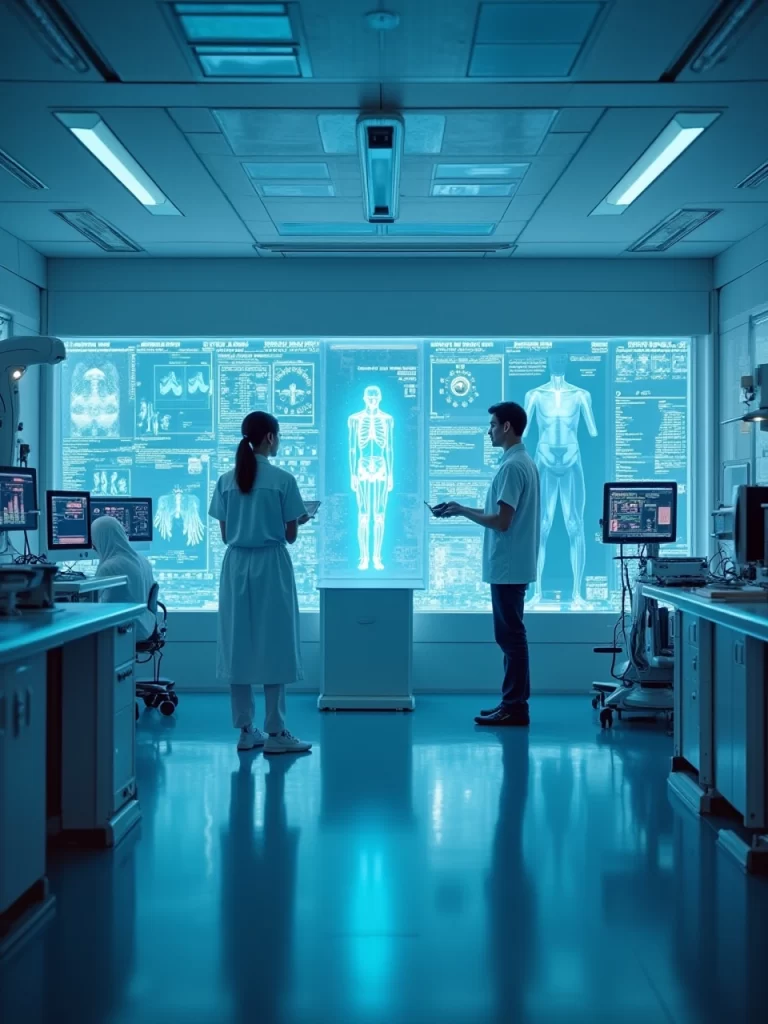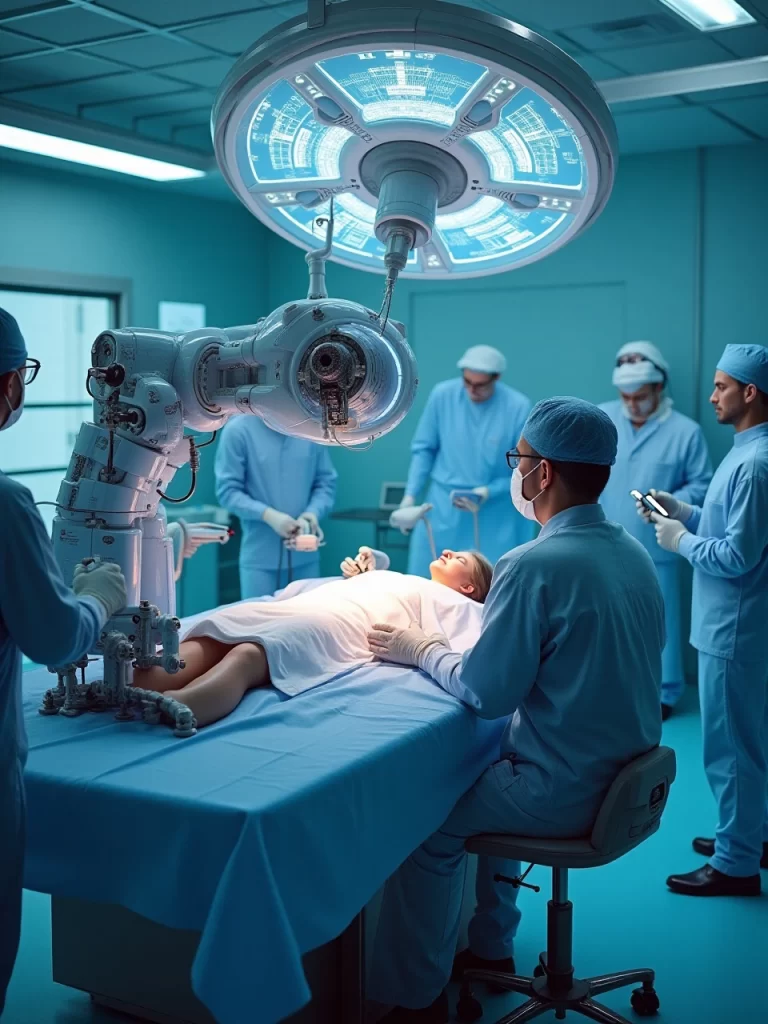Introduction
AI in Healthcare Engineering is revolutionizing how we understand, treat, and manage human health. The integration of Artificial Intelligence (AI) into healthcare systems has opened doors to faster diagnostics, personalized treatments, and efficient hospital operations. From smart diagnostic tools to robotic surgeries, AI in Healthcare Engineering is changing lives. At M.Kumarasamy College of Engineering (MKCE), we believe in preparing future engineers to lead this transformation through interdisciplinary innovation and ethical engineering practices.
In this blog, we’ll explore the importance of AI in Healthcare Engineering, its real-world applications, the role of engineers, and how MKCE equips students to build a healthier tomorrow.

Why AI in Healthcare Engineering is a Game-Changer
AI isn’t just enhancing healthcare; it’s reshaping it from the ground up. With algorithms capable of analyzing vast datasets at lightning speed, AI in Healthcare Engineering enables medical professionals to make quicker and more accurate decisions, often before symptoms even surface.
Key Applications of AI in Healthcare Engineering
- Medical Imaging and Diagnostics:
AI algorithms assist radiologists in identifying diseases like cancer and fractures, improving diagnostic precision and speed. - Predictive Analytics:
Machine learning models assess EHRs (Electronic Health Records) to predict disease outbreaks and high-risk patients. - Drug Discovery:
AI simulations reduce development time and cost by predicting how new drugs will perform. - Robotic Surgery:
Engineers develop AI-powered surgical robots that enhance accuracy and minimize complications. - Virtual Health Assistants:
Engineers design AI chatbots and voice assistants for 24/7 patient engagement and support.
The Role of Engineers in AI in Healthcare Engineering
Behind every successful AI application in medicine is an engineer—or a team of them. From software development to device creation, AI in Healthcare Engineering demands a unique mix of technical and domain-specific knowledge.
Skills Required for Success in AI in Healthcare Engineering
- Data Science & Machine Learning
- Programming (Python, R, TensorFlow, etc.)
- Understanding of Healthcare Systems
- Ethics and Patient Data Privacy
MKCE ensures students gain these skills through rigorous coursework and practical training.
How MKCE is Shaping Leaders in AI in Healthcare Engineering
At MKCE, our vision is to create tomorrow’s engineering leaders who can leverage AI in Healthcare Engineering to solve real-world problems.
Why Choose MKCE?
- Cutting-Edge Curriculum:
Interdisciplinary learning combining CS, electronics, and biomedical sciences. - Research and Innovation Labs:
Real-world projects at our AI Innovation Lab and Biomedical Research Center. - Industry Partnerships:
Collaborations with hospitals, biotech firms, and AI companies. - Experienced Faculty:
Experts guide students through emerging trends in AI and medicine. - Hackathons & Workshops:
Regular events that simulate real-life problem-solving scenarios.

Real-World Case Studies in AI in Healthcare Engineering
Case Study 1: Early Cancer Detection
Engineers created an AI system to detect breast cancer from mammograms with 90%+ accuracy—saving lives through early intervention.
Case Study 2: AI-Powered Wearables
Smart devices now detect abnormal heart rhythms and alert users. These wearables were engineered with AI algorithms and biosensors.
Case Study 3: COVID-19 Forecasting Tools
AI models designed by engineers helped predict infection rates and optimize hospital resources during the pandemic.
Ethical Considerations in AI in Healthcare Engineering
While the benefits of AI in Healthcare Engineering are vast, engineers must approach this field with a strong ethical foundation.
Key Ethical Challenges:
- Bias in AI Models: Ensuring equitable care through diverse data sets.
- Patient Consent and Data Privacy: Adhering to HIPAA and GDPR regulations.
- Transparency: Ensuring AI decisions are explainable to both doctors and patients.
At MKCE, ethics is a core part of engineering education, especially in sensitive fields like healthcare.

Career Opportunities in AI in Healthcare Engineering
With the healthcare AI market expected to exceed $190 billion by 2030, the career potential in AI in Healthcare Engineering is enormous.
Top Career Paths:
- AI/ML Engineer in Healthcare
- Biomedical Data Analyst
- Health Informatics Specialist
- Robotics Engineer for Surgery
- Regulatory and Compliance Consultant
MKCE provides placement training, soft skill development, and internship opportunities to ensure students are job-ready.
Conclusion – Be the Future of AI in Healthcare Engineering
AI in Healthcare Engineering is more than just a field—it’s a mission to save lives through innovation. As healthcare systems worldwide adopt AI, the demand for skilled engineers continues to grow. At MKCE, we nurture the curiosity, skill, and ethical responsibility required to lead this transformation.
If you’re passionate about revolutionizing healthcare through engineering and AI, MKCE Engineering College is your gateway to making a real-world impact.